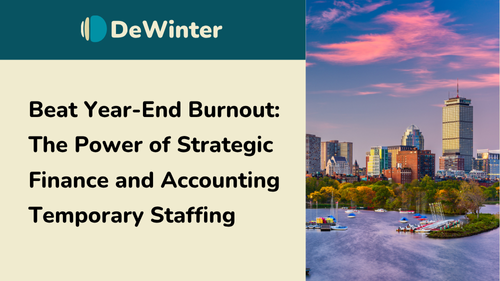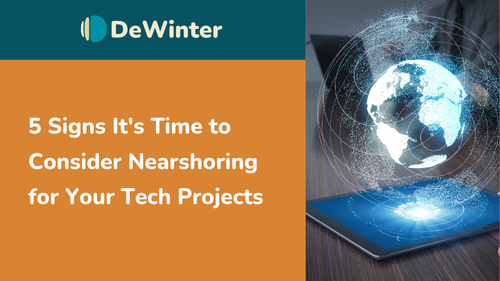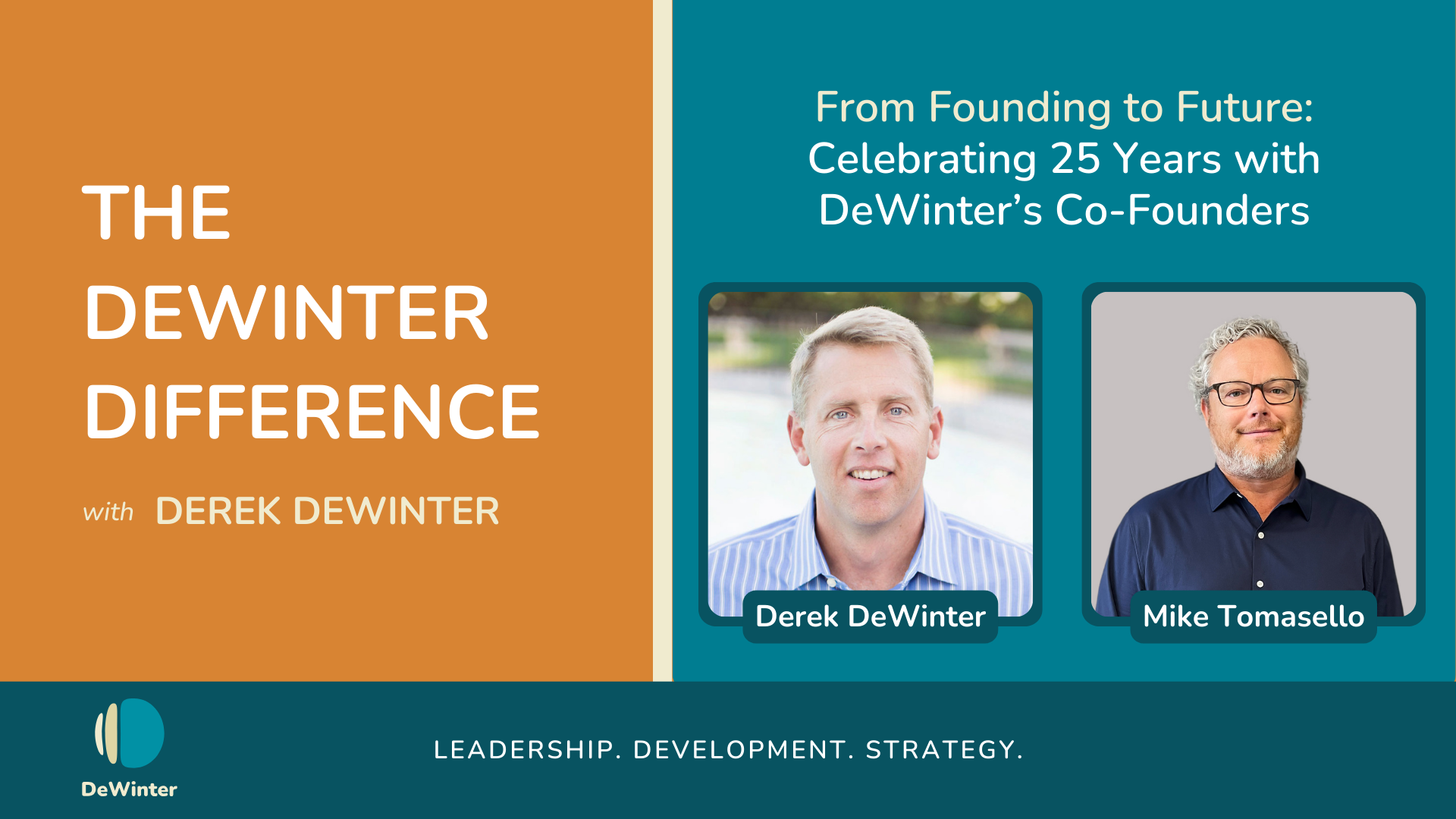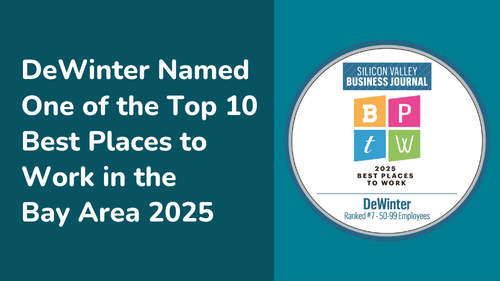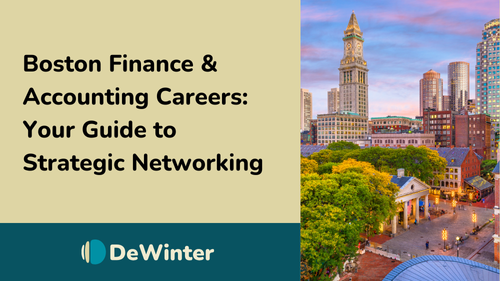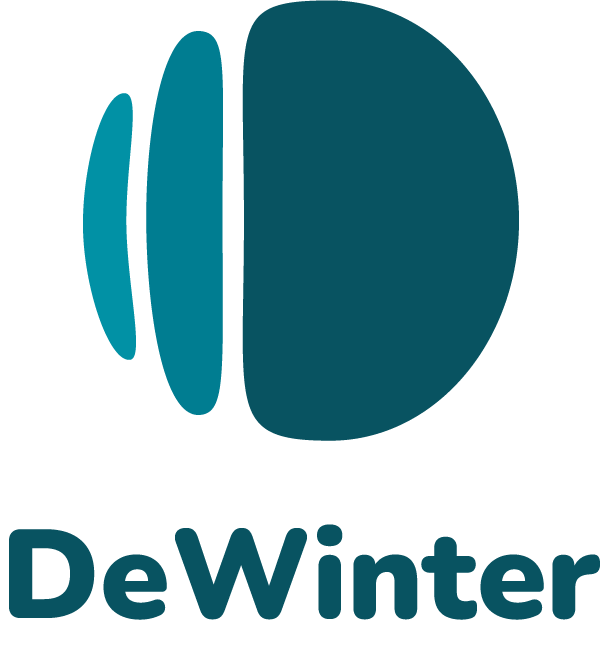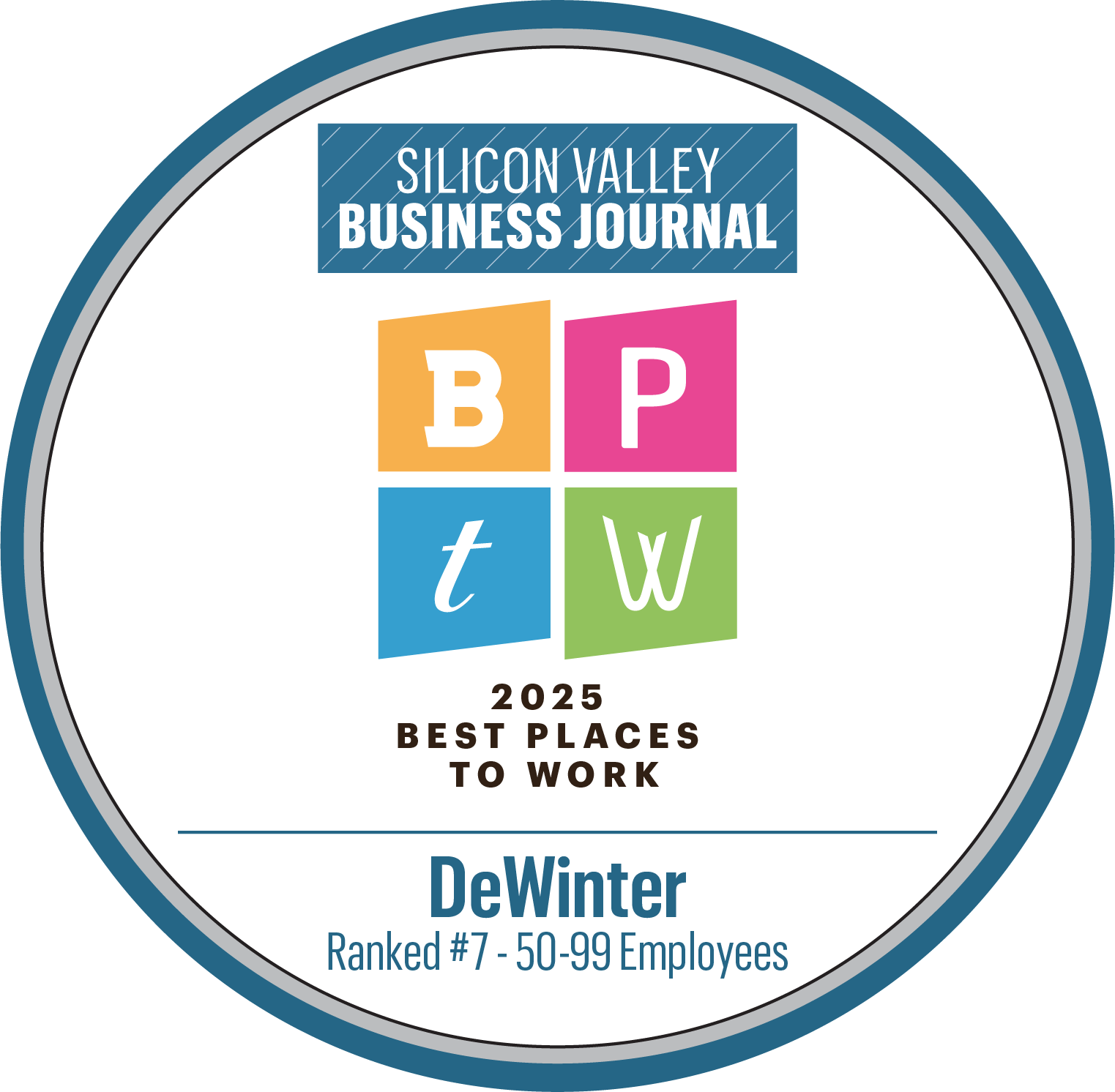The DeWinter Difference: Kerri Walsh Jennings, Five-Time Olympian and Co-Founder of Platform 1440
About The Episode
In this episode of the DeWinter Difference podcast, Derek DeWinter sits down with the five-time Olympian, three-time gold medalist, and all-around inspiring
Kerri Walsh Jennings. Kerri and Derek discuss her journey to success, the value of loving what you do, and her endeavor to inspire change and community as co-founder of the non-profit Platform 1440.
Learn more about Platform 1440 and its mission to unite, empower, and inspire through the transformative sport of beach volleyball at https://p1440.org/
Listen now at the streaming sites listed.
Learn more about the DeWinter Difference podcast here and share your thoughts and comments below.
Episode Transcript
This transcript has been edited for length and clarity.
Derek DeWinter: Welcome to our listeners who are tuning into the DeWinter Difference audio podcast, where I spend a bit of time with incredible executives, leaders, and today an American sporting icon. I hope our conversations are unique, insightful, short enough to keep your attention, but long enough so that you get some great takeaways that you can apply in your lives, relationships, or career. Today I am thrilled to be speaking with three-time Olympic gold medalist, Kerri Walsh Jennings. Her professional volleyball career is most notably connected with Misty May Treanor as the duo dominated beach volleyball for almost a decade between 2004 and 2012. Not only tallying three consecutive gold medals, but also play of the year honors and a 112-match winning streak in 2008.
For good measure, Kerri is also a graduate of Stanford with an American Studies major, and is currently an inspirational keynote speaker and the proud mother of three children. As for me, I finished runner-up basketball player of the year in 1989 at Baldwin High School on Maui.
I have rarely been so excited and humbled with the chance to speak with someone. So thanks for taking the time to talk.
Kerri Walsh Jennings: Ah, thank you for having me. Thank you for that fun intro.
Derek DeWinter: That literally was my highlight.
Kerri Walsh Jennings: That's really cute and runner-up that means you're, you're in contention. That's all you can ask. Be in the running.
Derek DeWinter: Truth be told, I got the only vote that wasn't for the player of the year. It's because that coach couldn't vote for his own player.
Kerri Walsh Jennings: Don't tell us those details.
Derek DeWinter: We'll edit that one out. Alright. Hey Kerri, you are widely known as the best beach volleyball player of all time, but there was a lot of life before beach volleyball. Can you take us through a bit of the decision-making process that led you ultimately to compete in beach volleyball?
Kerri Walsh Jennings: Yes, absolutely. You know, it came out of nowhere. And yet all of a sudden in retrospect it all makes sense. You know, I grew up in the Bay Area playing every single sport in the fifth grade. I continue to play everything that's a single sport, but I fell in love with indoor volleyball. It was my first true love outside of my father and my brother, who are still my heroes.
And I just fell in love with the game. And so I played at Archbishop Mid in San Jose. Great, great high school. They, you know, gave me such a solid foundation as a human, you know, like building my character, supporting me in many ways. And then with my skill set, and then I got a scholarship to Stanford, played four years there, was surrounded by greatness.
Very inspired. Never ever had one inkling in all this time that I would play beach volleyball. I played my first Olympics when I was 22. Indoor. We finished fourth, which will really piss you off and, and make you want more or will make you so sad you give up. At the games, I experienced heartbreak and kind of a betrayal that made me rethink my path, you know, so I kind of had All these disillusions about my federation, about the indoor scene, how political it was, how, how, you know, you're supposedly supported, but you're really not. And so that made me rethink things. And then also at the games, my parents met Misty May's parents, who at the time was in her first Olympics, but playing beach volleyball. Misty growing up was my childhood idol. She's a year ahead of me. Got her autograph when I was 14. Every time I got a chance to watch her play, I would watch her and learn and just be so in awe of her and our parents got to talking in Sydney and said, Hey, we should get the girls together. You know, they're, they're roughly the same age.
Let's see if there's magic. And so after the games, I went back to Stanford. I was finishing my degree there and I would travel down to Huntington Beach and I would train with Misty. And you know, when the best in the world comes calling and opens the door for you, you kind of suck it up and do something you've never done before and you go for it.
And I went for it with all my heart. It was very humbling. I literally cried every single day because I felt. I, you know, I came from a pretty confident place. Indoor. I thought it'd be pretty similar, but the nuances and the slight differences in the beach game crushed me. Mostly, they crushed my ego, you know? So that was it.
Derek DeWinter: And was that your first professional beach volleyball?
Kerri Walsh Jennings: Yeah.
Derek DeWinter: Yeah, that was it the first time.
Kerri Walsh Jennings: Yeah. Absolutely. You know, I, I got, I probably had like five practices up at West Valley College in the Bay Area. Before I got to practice with the best in the world but you know, it's just, and it was, it was so scary. Like, I remember having a panic attack day of, you know, like training with Misty, and the day was so casual, like her parents set up just a casual training session. We actually, they just wanted to see me play and so they set up me and Misty, Misty and I, versus two guys. One of the guys happened to be my future husband, so that was the first time we ever met.
Derek DeWinter: Well done.
Kerri Walsh Jennings: Well, exactly. God has, you know, lots of plans in store. And so that day changed my life in so many ways.
But yeah, it was the first, the first, my whole life I avoided playing beach volleyball. I grew up near Santa Cruz on the beach all the time. People ask me to play all the time. And I said no, mostly because I didn't wanna look like a fool, you know,
Derek DeWinter: That's so funny. It's like, Hey, LeBron, come play pickleball. Like what?
Kerri Walsh Jennings: He'd say, hell yeah, you're going down, you know, there's something interesting about the sand, you know, it's just really intimidating and, and I, you know, Definitely admit that even now, you know, it takes you a month to get your sand legs and it makes you feel like an idiot. So if you can, you know, if, if you can check yourself to feel like an idiot for a good amount of time, then you will get there. And I cried a lot, but I got there and I was grateful.
Derek DeWinter: Well, I'll ask a dumb question. Were you outside at Stanford?
[00:05:29]
Kerri Walsh Jennings: I was right side.
Derek DeWinter: Okay, so like you were used to jumping very high and the sand is not a friend for that at all. So that's even of itself. It's like, oh my gosh, really? I can't even get up like I used to. That's to stand. Yeah. Crazy.
Kerri Walsh Jennings: Well you have the sand, which takes away your vertical. Which mine was never that great. You know? And mostly it's the timing, you know? And even with the setting and the wind, like the, the wind, if, you know, if it takes the ball an inch, you know, away where you thought it was like you're gonna whiff it, you know?
So those little things crushed me. And you know, I was urgent. Like I was playing with the best in the world. I wanted to be great. And every time we lost for the first year and a half was literally because of me. You know, and so it was really hard and because Misty is so steady, she just, you know, she's a Jedi and she stuck with me, which is a testament to her and her fortitude and her ability to imagine better.
And I, what I've learned in life is that your ability to imagine, you know, better of yourself, better of a situation, it'll allow you to get there, but you just have to stick with it.
Derek DeWinter: Awesome. All right. We're gonna play a little game called How to Spend My Allowance. Okay. So you, I'm going to, I'm giving you a hundred dollars that you get to spend on the attributes that you think made you most successful. And so if you felt like, boy, you know, I, I'm gonna put $90 on athleticism and $10 on, you know,
Fortitude, then you've got nothing left to spend on anything else. So are there a couple of different characteristics that you would weigh very highly with your $100 spend?
Kerri Walsh Jennings: Love. Love of the game is a premium. Premium. Premium because, I wanna quantify it because if I love something, I will suffer for it. I will stick with it. I will be willing to be a fool for it, you know? And to be a beginner over, and over and over. So love to me is, is everything but not a hundred per, obviously, I can't spend my whole hundred bucks there. But I mean, I, I'm tempted to say that's 80 bucks of it, but I, I don't I don't know. And I'm talking at the highest level, right?
Like, because at the highest level, everyone, everyone's really physical and good and they can do their craft, right? So for me it's like the intangibles. And I think what makes me special, it's not because I'm tall, it's not because I jump high or hit hardest. Like it's because I love it and I'm willing to show up every single day. So love, consistency and it's not just consistently showing up, like it matters how you show up. So me phrase it like showing up with all my heart, showing up to win a gold medal every day.
Derek DeWinter: That is perfect. That is perfect. Well, you've obviously been very successful over the course of your beach volleyball career and your volleyball career in general. Successful women in any line of work face very unique challenges in sports. There's added dimensions of a compressed time period where you're at your physical and earnings peak, and that can conflict with starting a family, you know, and living life outside of sports if it's not too much to ask. How did you navigate that?
Kerri Walsh Jennings: Well, my whole life I just couldn't wait to be a mom. My mom has carried eight children, three for her sister. Like I just wanna be a mom. And my mom was an athlete. She's very present, still is. Just kicks ass. And so I had this amazing role model. And so I married my husband in 2005. We right away, like my, my, we won. I had just won my first, first gold medal and I was like, okay, I'm married. Let's start a family. I can have a baby and get back really, you know, to the sand really quickly. Because you have to time it, like you just said, you know, no time to waste. We got pregnant right away.
I had a miscarriage and the way it happened was like either Carrie, you have to wait. You have to wait to get pregnant, otherwise, you can risk this turning into cancer or go play in the Olympics, you know, try per baby right After 2008 and we decided to wait and it was so devastating. My job started to feel trivial.
I just felt so selfish and self-centered. Like I was ready for more, right. But I was committed. So we won in 2008, got pregnant right away, got pregnant right away again. My baby was three months old when we got pregnant with number two. and so, and that was. The plan and the hope, and we, you know, we were blessed with great timing, you know, but we really, like, I'm an Irish twin.
My brother's 11 years older than me. My husband Casey has, you know, four older brothers and they're all very close. And we wanted that. And as an athlete, it's like, okay, I'm about efficiency and I know my body is gonna respond. I know I want this, so I'm willing to put up with the changes in my body, the changes in my lifestyle. And we went for it. And it was amazing. And the first, you know, our first official try, if this is not too much information, I cried. I bawled my eyes out. I said, what the hell did I just do? Everyone in my world was like, don't get pregnant. It's gonna change your hips. You, it's gonna hurt your shoulder because you have to carry the baby.
You know, like you're at your major, you know, earning potential right now. Don't even take your husband's last name. That's gonna affect things. And all these things that were so fear-based and. You know what, for a long time I didn't add Jennings to my last name. And right now, every time I talk to a girl, I'm like, if you get married, change your name right away.
I have an identity crisis, you know, like I'm my fuck “Am I Walsh?” “Am I Jennings?” Like my husband gets called Mr. Walsh and that's not what I want. I wanna be my, my husband's girl and my kid's mom. I wanna be Jennings, you know?
But the baby stuff was so easy. I was so ready to be a mom and I was so sick of putting my life on hold, like you said. because you can have both. And I wanted both and I wanted it all. And I still do.
Derek DeWinter: Good for you. Pay equity in sports. Huge topic and probably the most highlighted by our US women's soccer team. It's a topic that crosses over from the field of the court to corporate America. But one of the unique sports that seemed to get it right early on, at least as much as I've done research on, is volleyball, where since 2004, prize money going to winning men's and women's volleyball is equal.
Can you comment on how this actually came to be? And maybe also then why there's such a gigantic disparity in other sports.
Kerri Walsh Jennings: Well, you know, so I think actually the equity and prize money started when Leonard Armato rebought the AVP in like 2001 or two. Because he merged the men and the women together and there was equal prize money from the start, which is incredible. And, even internationally, it was always equal prize money.
And I'm not quite sure, I don't know if it's because the women are so appreciated in beach volleyball that it just made sense. ever since I've been playing, it's been equal prize money, so we never had to do that battle. The dirty little secret though is that we're all broke. You know, no one's making money on prize money.
Like, thank goodness for sponsors, for corporate partners [00:12:00] who really get behind us because that funds our dreams. If we were to rely on prize money for a living, no, it literally does not work. You know, maybe, maybe for four athletes around the whole world, but we need that outside support, you know? And then, and the broader landscape of sports, you know, it's kind of. It's not as black and white. I think the conversation, you know, you know, is out there. Like, I don't think it's like the women are paid less because they're women. It's like, well, you know, the federation and the men's side of the game, they receive billions of dollars when they participate and when they win, you know, an event, the female side, you know, is pennies on the dollar?
Do they get hundreds of millions of dollars? You know? Or you know, a certain amount of money, millions to their federation, and then it's dispersed. You know what I'm saying?
And so the women are way more prominent in the media, but like the bottom line in the whole, you know, the way the system is run is that they don't make as much money.
And so the split is different. But I think corporate America is kind of upping the ante when it comes to the women and the personalities and the leaders. They are. And they're really highlighting, you know, not enough of them do.
Derek DeWinter: Not enough.
Kerri Walsh Jennings: But you know, it's that it kind of makes up for the gap, but I don't think it's a black-and-white conversation.
This is like about keeping women down. It's like, no, the market is still adjusting to the greatness of women. Opportunities continue to, to get more and more, which, you know, it's gonna, you know, a rising tide lifts all boats.
Derek DeWinter: Absolutely. Do your kids have an early interest in volleyball?
Kerri Walsh Jennings: Yep.
Derek DeWinter: Oh.
Kerri Walsh Jennings: They don't, they don't play it, but they, you know, it's the one sport actually they don't play because the boys, there's not a lot going on here in Lake Tahoe, but my husband just started a club. But yeah, they're athletes. They love it. It's great.
Derek DeWinter: Are you, are you ready to be a volleyball mom? If that were to be the case?
Kerri Walsh Jennings: Yeah, absolutely. I would never coach because I'm a terrible coach, but you know, I'm a good spark plug and I can go and inspire them. Yeah, I can't wait. Like, I love being a, a sports mom, a soccer mom, a baseball mom. It's my favorite thing in the world.
Derek DeWinter: I am a late adopter to volleyball. I think if I would've, it wasn't a big deal, particularly men's high school volleyball on Maui was not a big deal. It's actually probably a bigger deal than it was in the us. I view it. Did I just say that on the mainland? I think if I would've been introduced to it, I would've played it.
But my son played and my daughter played. And one of the more challenging things I found about the sport, other than it's awesome and positive. And after every point it's like you're reset and you're ready to go again when you high fives, when things go wrong or right. But the travel ball, the was, was challenging as a family.
I think, you know, it's very difficult for some groups to be able to participate in because it's financially challenging too.
Kerri Walsh Jennings: It's, yeah, it's such a bummer. You know, I, I mean, I, I don't, I'm, I'm gonna botch the numbers, but it's, it's eight to 15 grand to play in a club. You know, indoor volleyball, beach volleyball. It's so expensive. And, and that's why, you know, our company, P 1440, we give out over a hundred grand and, and scholarship money to help subsidize these girls' dreams. Because we don't want, you know, anything to price out these athletes like volleyball, like you just said, it's one of the, it might be the only, but I'm not quite sure. It's like one of the most amazing sports to build your character, to build community, but you can have a life along with volleyball.
Whereas I feel like, you know, in some other sports, not that these are bad, but soccer, basketball, it's so all consuming that it's like there's no outside life and volleyball is still, there's so much opportunities, there's scholarship opportunities and it's so intense. But for some reason, you could have that lifestyle and that's why I love it so much for boys and girls, men and women.
Derek DeWinter: We recently connected on this was probably just a month ago when you were in Nebraska at that event, if you have not seen this, you need to go YouTube it and see a hundred thousand people in the stands for an outdoor women's volleyball game Nebraska. I don't know who Nebraska played actually, but,
Kerri Walsh Jennings: Omaha, I believe.
Derek DeWinter: Yeah, it was something local-ish and it was unbelievable. So, can you describe the scene there?
Kerri Walsh Jennings: Man. So over 92,000 people in Memorial Stadium in Nebraska, which is where their football team plays, which apparently they have over 300 straight sellouts in that stadium for football. So Nebraskans show up for their people and they, the goal is to break a world record for women's sports, you know, live sporting events. And they committed and they did it. And it was so well produced. It was such a, it, it was just so programmed, so well, there's two volleyball matches, you know, a match prior to the main event there was a sand zone. It was super engaging. It felt like a carnival walking around the grounds. And then the match was awesome. You know, it felt important. It felt like it carried weight and gravity and the crowd was so engaged and so kind. I was so, like, I had to be there. I'm so grateful I was there. DirecTV flew me out, which I was so grateful for. Got some behind the scenes, I got to engage with the girls a little bit.
And it just, it shows you what's possible, you know, like I, I don't want that to be a fluke. And since then there's been some major, you know, not world record breaking, but you know, like in, in Florida they had their, you know, their highest intended crowd, you know, breaking record, breaking crowd in Florida. And these matches continue to grow and build momentum. And our sport is just nuts right now. And it's because they're creating the opportunity and then people show up, you know? But Nebraskans show up like no other, and I'm gonna do a post soon just to recognize that. Because like we all talk about, we want, we, you know, we want the sport to grow.
Why isn't it growing? It's like you have to show up. And not just once, but all the time it's like becoming great. It's not about being great, you know, Monday, Wednesday, Friday, it's about being great and giving everything every single time you have a chance to. And Nebraskans do that with all their hearts.
Derek DeWinter: I'm now longer a closet Wisconsin fan. I've got two kids to go to Wisconsin. They're number one in the nation. Plug, plug, plug.
Kerri Walsh Jennings: So rad.
Derek DeWinter: I just pulled up the schedule and I'm looking at it while we're doing this. Nebraska plays Wisconsin, October 21st.
Kerri Walsh Jennings: Ooh, are you gonna go?
Derek DeWinter: Well, I've got boy, girl twins, so they're both there. Yeah. I know.
Kerri Walsh Jennings: You’re allowed to like Wisconsin.
Derek DeWinter: I'm allowed to love Wisconsin. I better, they love me. I'm writing some pretty decent checks out there. Alright, so I've asked you a bunch of questions. We get to flip the script. You get to ask me a question. I don't know what you're gonna ask me.
And in fact, you didn't know at all what I was gonna ask you because you took the chance to not look at any of our little, my notes that I sent you. So you've done unbelievably well, but you get to ask me a question. Whatever it is, I'll do my best to answer it. We'll flip the script here a little bit.
Kerri Walsh Jennings: Okay. So considering your podcast and the theme and your past guests and your personal experience, because I believe like attracts like, and everyone on your podcast resonates with you. My question, I'm not quite sure how to phrase it, but it would be around I mean, I guess, actually I wanna flip it on you.
If you had a hundred bucks to spend like, but not just for you, I would say for all the greats that you've interviewed, like if you were to say maybe you had a hundred bucks to spend, what are the top three I you need to have at least three, you know, tangible, intangible qualities that are consistent around high performers.
Derek DeWinter: I did one not recently or just recently ago. And something that I think about a lot might be redundant if we do these back to back or something, is authenticity. Like, I like really authentic people. I. And maybe because of that, I'm getting older and I don't have time for the bullshit of people trying to like, say the perfect answer at the perfect place to please everyone, but not really being their authentic selves.
I love that. It's just more interesting, even if, even if we don't agree, even if there are things that we don't see eye to eye on, if you're authentic about it, and it comes from a place of goodness, I mean authenticity from a place of badness. It's not something that I, you know, I'm endorsing, but authenticity from a place of goodness where you're really trying to connect with people I love.
And so most of the people we're talking to, I believe, embody that. And it's, it's, I think it's bearing out to be relatively true. So I look at that all the time as something that I, that I place my, my interests and time and effort into.
Kerri Walsh Jennings: Okay. I'm raising my hand. How can you tell, does this resonate with you differently or,
Derek DeWinter: Well, you know, so I'm a headhunter. I've been doing this for almost 30 years. I have interviewed, I don't know, maybe not well, but I've interviewed 20, 30,000 people over the course of my career. I don't even know what the number is, so I. There's something in, I think I've picked up an intuition around, you know, people, I can tell relatively quickly, my, my wife sets us, one of my superhero traits was like, you kind of, you, you get people before any of us get them.
And you always seem to be right about them years later. Even if you kind of thought, you know, that person is X, Y, or Z and everyone else loved him. I'm like, Hmm, I don't know. There's just something about . That. So I don't know, maybe I'm getting a little bit lucky or maybe I'm just aligning myself with people that are like you. Which is a nice way to give myself a compliment, I guess. But I didn't mean it like that.
Kerri Walsh Jennings: No, of course. Well, it's true.
Derek DeWinter: Yeah.
Kerri Walsh Jennings: Question, actually. Sorry. I'm sorry to interrupt because I wanna hear the rest of your, your. Categories. But my husband has the same radar, it sounds like that you do. And he, like, he grew up in Vegas, so it makes sense to me. You know, when you grow up on the streets of Vegas, you have this sense about people. For me, I grew up in a bubble. In a bubble, right? Very sacred. I trust everybody, you know, to a fault. And I give people a lot of chances. And that's just kind of the way I'm wired, the way I was raised. But I don't, he thinks I don't trust, I need to experience someone for myself. You know, rather than take someone's red flag. Not that I don't listen to it and hear it, but I need to experience it. And I don't know, I mean, maybe, maybe this is marriage counseling help, but I don't know how to marry the two, you know? Because it turns out inevitably, five years later, cases, like I told you, I'm like, damn it.
Derek DeWinter: Boy, I don't know how to put those two together. You know, it's funny you grew up in a relative bubble here and my kids are now because we're in Los Gatos I grew up on Maui.
Kerri Walsh Jennings: Yeah.
Derek DeWinter: So I grew up as a, you know, six-foot tall, blonde, blue-eyed, you know, guy on Maui, which gives you a very different perspective on people.
And, you know, I found myself, my safety valve was I want to try to trust those around me as much as I possibly can. So they gave it back to me. And I don't know,
Kerri Walsh Jennings: Because people were suspicious of you, because you weren't local.
Derek DeWinter: Well, I don't, yeah, definitely not local looking. And you know, it's, this was 30, 40 years ago. Things were even more different back then.
And yeah, I mean, I was the only one in my schools, my classes, my class pictures that looked like me for 15 years. This was all public high schools. So, I don't know, I find myself, like the more I reach out across the aisle to try to connect, try to get, try to understand the, the better it worked out for me, I think in the long run.
Kerri Walsh Jennings: And were you, did you have, did you feel like you had to edit yourself? I mean, all kids do, right? They [00:23:00] wanna fit in.
Derek DeWinter: Oh yeah.
Kerri Walsh Jennings: Did you lead with being authentic?
Derek DeWinter: No, I did not, because that probably wasn't gonna play out well in part because my dad was a doctor, you know, and that wasn't the thing to lead with. I mean, we weren't wealthy, but we were well off enough. And so that was another, it wasn't a strike against me, but I never told anybody. My dad was a doctor for instance.
It's just like, I don't know. And maybe that's why I appreciate authenticity so much. Now it's like because I had to live in a way to try to get by, to try to, you know, fit in, to try to get people to accept me in a way that they weren't expecting to accept me. Hopefully. So, I don't know.
Kerri Walsh Jennings: I love that. Well, I know it gave you a superpower, and that's probably the superpower, so that's right.
Derek DeWinter: There you go. Well, why don't you tell us what you're doing these days and how people can get in touch with you. You are an amazing conversationalist speaker. So share with us how we can get in touch with you, how, how we can make your life a little bit better.
Kerri Walsh Jennings: Well, hell, you know, I wish I was, you know, gonna say I'm, you know, I'm, I'm preparing to compete my six Olympics, but I'm not. And this kind of came outta the blue about a month and a half ago. I saw the writing on the wall. I had surgery five months ago on my ankle. It was really extensive, and I'm not coming back as fast as I want.
So the Olympics are off the table for me, which virtually means I'm retired. And so I'm transitioning, but I'm not saying I'm retired. because you never know. And I wanna be an athlete my whole life, period. Like, let me just get that statement. My physicality is very important to me. It makes my spirit stronger, my mental capacity stronger, you know, my ability to connect with humans and the world stronger.
So that's huge to me. But I'm in this transitional phase where I literally, I. I, I'm like praying to God for like, God, please help me find my North star. Because I'm very, very good when I have a pursuit. You know, like when I'm reaching for that gold medal, then my whole life gets structured. And right now what I have is no North star, no gold medal.
But I have, I wanna feel abundant in my life. I wanna feel, you know, on purpose and on point, I want to feel empowered and it connected my family and, you know, abundant and free. That's like what I'm working toward, but I don't have any, any mechanism to structure my life around. So that being said, you know, I'm running my company p1440. We're a nonprofit now, so I'm really, you know, working on spreading awareness and raising money so that we can keep servicing the youth's mind, and spirit, and prepare them for the challenges of life. Through the mechanism of beach volleyball. Like you said, like I just got home I did an event last night with Ridgeline, which is a company here in Tahoe.
I had a, you know, a fireside chat and it was so fun and so inspiring, hopefully for both sides of it. But, you know, I'm talking to these people who work in the cloud-based, you know, services. Like we don't speak the same language, but we spoke the same language because we're competitors, we wanna lead with excellence.
We understand the power of innovation and, you know, having the balls to innovate and constantly, you know, Reframe who you are and what you wanna give to the world. And so outside of speaking and running my company I'm working with the Pro Volleyball Federation to help launch that new league where the best of America is gonna be able to play at home starting in 2024. I'm a co-owner in a San Diego franchise.
So there's a lot going on, you know, but I don't know. I know I wanna leave a legacy in the game. I wanna, I wanna bring the pro beach volleyball side of life up to where we can have events like they just had in Nebraska, where over a three day weekend we have a hundred thousand people that come, enjoy the game, enjoy music, enjoy the lifestyle.
That is beach volleyball, and we can give, you know, we can create the AVP tour for beach volleyball. The athletes are suffering. They need that. And I'm on a mission to do that. But you can find me on social, you know, I don't know. You can just, I'm just here
Derek DeWinter: All right. Well everyone, if you want more out of this conversation, which I'm sure everyone does, you guys can reach out to her organization. Kerri, it was awesome talking with you today. It was an absolute honor and I will look forward to seeing you again on the hiking trails in Tahoe or if you happen to be down here in Los Gatos one of these days.
Kerri Walsh Jennings: Los Gatos is my favorite town in the whole wide world.
Derek DeWinter: Then I will look forward to that something that happens. I'll get you down here. Thank you again, Kerri. You are amazing. Thank you. Thank you.
Kerri Walsh Jennings: Thank you. Have a beautiful day. I appreciate this so much.





